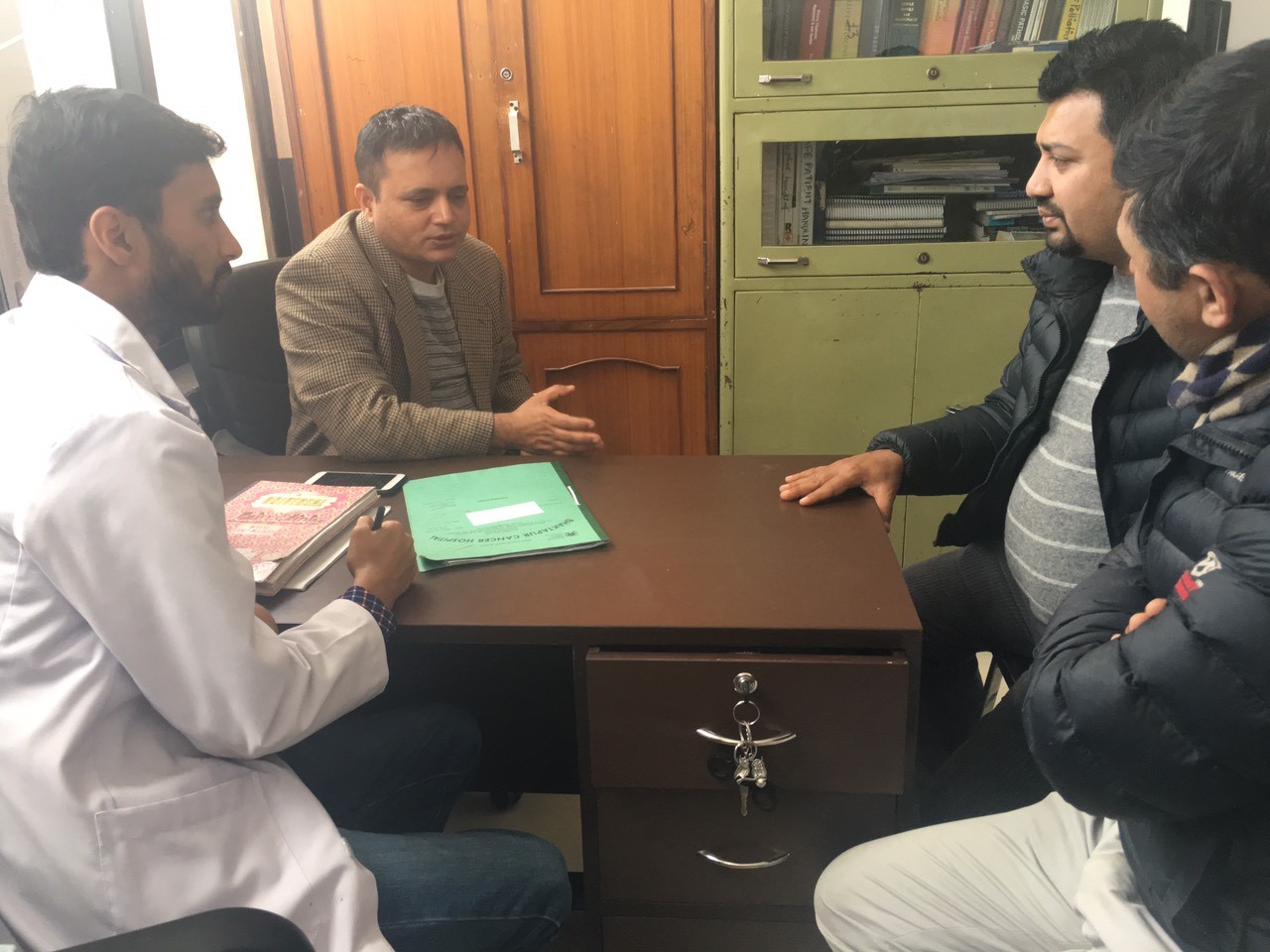Information for Doctors
Why this service is important for you to think about using


Almost all Nepali patients with serious life-threatening illness, especially patients with advanced cancers, have high levels of distressing symptoms, particularly pain and breathlessness. In a study of 383 patients in Kathmandu, over one third had severe pain, and over half were depressed, had significant levels of anxiety, poor appetite and poor sleep.* Pain may be managed, if timely expert interventions are made. Despite best of intentions, as a doctor you may not be able to provide your time and presence for your patients when they are most in need. Making home visits is not very practical.
Part of the problem for busy doctors is that you do not have “real” time (that is current) symptom type and intensity information. When patients are feeling the worst, they do not want to come to the office or clinic. A second issue is that you do not have such current and older symptom information easily accessible-at your fingertips. Finally, some easily accessible ideas and guidelines about interventions to treat difficult symptoms are not available when and where you need them.
This NAPCare homecare service addresses these problems and can help patients and their family care-givers to make him/her feel better without a lot of hassle and time.
In summary, this system provides you with the opportunity to provide quality care to your patients and their families under your supervision.
*For scientific publications about these data please go to Love, R.R., Ferdousy, T., Paudel, B.D., et al.: Symptom levels in care-seeking Bangladeshi and Nepalese adults with advanced cancer. Journal of Global Oncology July 27, 2016, doi:10.1200/JGO.2016.004119. And: Love, R.R., Paudel, B.D., Ahsan, G.M.T., Ahamed, S.I.: Symptoms in Nepali patients with incurable cancers: implications for interventions. (submitted)
How the service works conveniently for you and your patients
You can recommend this service to your patients and tell them to contact the NAPCare Home Care Service to make the arrangements or you can directly contact the NAPCare Office: Ms. Roshani Gautam, Phone: +977-9808257322. The NAPCare staff will make all the arrangements and get the critical information from whomever contacts our office. Once your patient is signed up, the NAPCare staff will train the patient and family and make sure the patient has the phone capacity and can complete and send in the questionnaire reports. In fact, the phone “app” is really very easy to use; in the study referred to above, every one of the 383 patients had no trouble filling out the questionnaire app. The NAPCare staff will give you a sign in password for its website where you can access your patients' reports and the NAPCare Palliative Care Clinical Practice Guidelines at the Doctor’ site. The site is easy to navigate. You can also look at example patient reports and these guidelines at the Guest Site Page.
How do doctors get paid for using this service and treating their patients using this system
In the future, NAPCare may ask patients to pay a small amount to use this service for receiving the reports, and organizing report summaries on the website for the doctor to view. If the patient does not pay, then there will be no report summaries on the website for the doctor to see.
To pay the doctor for his/her ongoing care, and to ensure good record keeping, and proper recommendations sometimes of narcotic medicines, the patient or a family member will be required to have a paid-for clinic visit with the doctor at least every two weeks. At this visit the doctor can review what has happened in the last two weeks (looking at the summary reports on the website), update the patient's medical record, check by telephone call to the patient (if he/she is not the person making the visit) about how the patient is doing, and make specific recommendations.